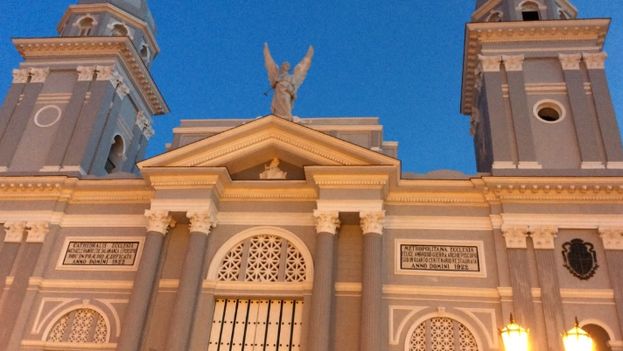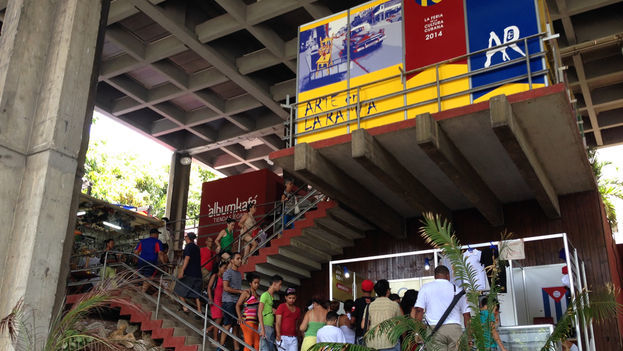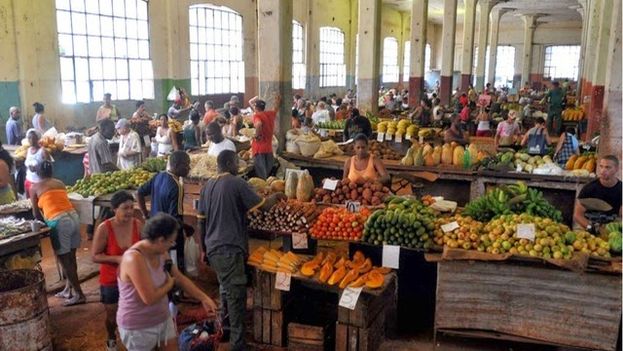
![]() 14ymedio, Dominique Deloy, Havana, 5 September 2016 — Sometimes I have the impression I’m talking to myself inside an aquarium: I can’t open my mouth without fear of drowning, no one wants to listen to me, my questions are never answered. Some, of course, consider me indiscreet, daring, even a comemierda (literally “shiteater”) as they say here, although I don’t know what this word is really meant to convey, untranslatable in French but pleasing to my ears: stupid, timid, naïve?
14ymedio, Dominique Deloy, Havana, 5 September 2016 — Sometimes I have the impression I’m talking to myself inside an aquarium: I can’t open my mouth without fear of drowning, no one wants to listen to me, my questions are never answered. Some, of course, consider me indiscreet, daring, even a comemierda (literally “shiteater”) as they say here, although I don’t know what this word is really meant to convey, untranslatable in French but pleasing to my ears: stupid, timid, naïve?
It is a fact that asking too many questions is frowned upon here. They often reply to me, “I don’t know, I haven’t asked,” implying that one has to be very strange to ask about such things, almost suspicious. continue reading
And it is not just when it comes to politics. Politics? Who talks about politics here? The word itself is… suspicious! How many people have said to me, “I don’t like to get into politics, it is of absolutely no interest to me.” To even talk about this here is like something obscene, unseemly. Pity the French returnee, who adores politics and likes to remake the world over and over talking with her friends! Almost a national sport! Shut your mouth, poor little fish-returned-to-her-native-waters, comemierda!
Politics? Who talks about politics here? The word itself is… suspicious!
But that’s how it is. The French returnee wants to know everything. Not only why the monthly salary of her aunt Candita, architect and head of Housing Services, isn’t enough to buy a pair of shoes. Also why Cuba still has two currencies: one called “national” and the other… what to call it, then? “Foreign” perhaps? And how to know when to pull out which one (when both the bills and coins are very similar)? Why is it that sometimes you can pay with either, making the conversion, and sometimes you can’t: when there are two different prices for the different currencies, one for real Cubans and the other for tourists, or “fake Cubans,” like me?
Yesterday I had to pay five CUC (Cuban convertible pesos, the “foreign” currency) to enter the Museum of Fine Arts – even though its magnificent roof is on the point of collapsing on the works of Courbet and Degas, and you can see the sky through it – while my companion paid one-twenty-fourth as much in national currency (CUP); with no explanation, as if the teller was deaf, looking at me in silence when I asked him why. Why, yes indeed, why? A real brainteaser.
It is fortunate that they do not charge me for my bread ration in CUCs, but I always go to the bakery with apprehension and a little shame, as if I was thief trying to steal bread out of the mouths of real Cubans. I feel the same when I travel alone in one of those fascinating machines, my hair blowing in the wind, my nose filled with the smell of gasoline and reggaeton thundering in my ears. I pay like the rest: 10 pesos in national money, but I feel “clandestine, illegal,” to quote Manu Chao’s song.
Yes, the French returnee wants to know everything. She likes unambiguous explanations, rational, direct words, clear
But it is not only the money, although this is the main topic of conversation (along with finding out where you can get yogurt or chicken today). I also want to know why the border between legality and illegality is so thin here. For example, why, in front of everyone, in a bakery with a French name, do they give me an open, half-empty package of cookies, and especially why, when I ask for an explanation, do they sneer at me instead of apologizing? It is the same for bottles of water and packages of pasta, where the eye can discern the subtle and clever slits used to remove a third of the product from its container while the price remains the same.
Yes, the French returnee wants to know everything. She likes unambiguous explanations, rational, direct words, clear.
Furthermore, in her aquarium, the returnee is deaf: there is no internet here or very little. A few incredibly expensive minutes in a wifi zone, as long as it hasn’t crashed, in which case you can never know for how long or why. It’s clear you can’t use the internet to be informed. And don’t even talk about the press… which says whatever it wants whenever it feels like it. There’s nothing left but Radio Bemba – Big Lip Radio – word of mouth. So here you never know anything. The returnee is obliged, therefore, to ask without any answers, to open and close her mouth in her aquarium. With no results.



